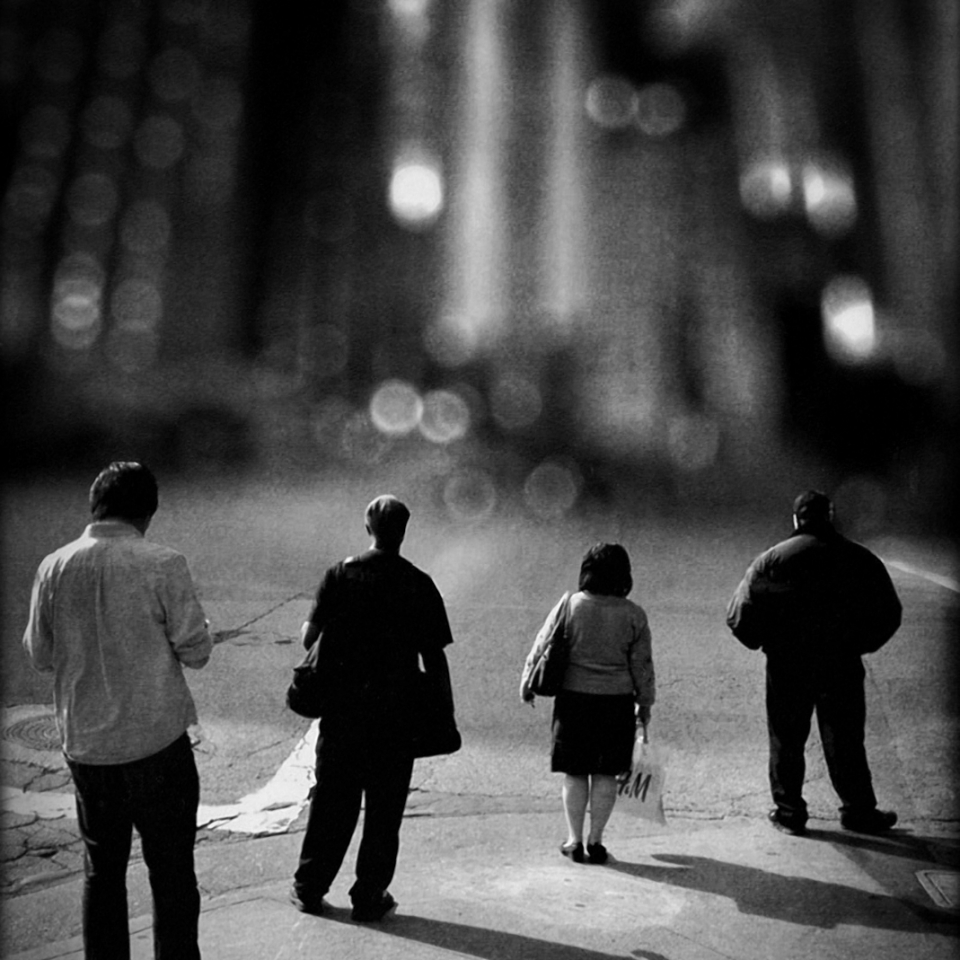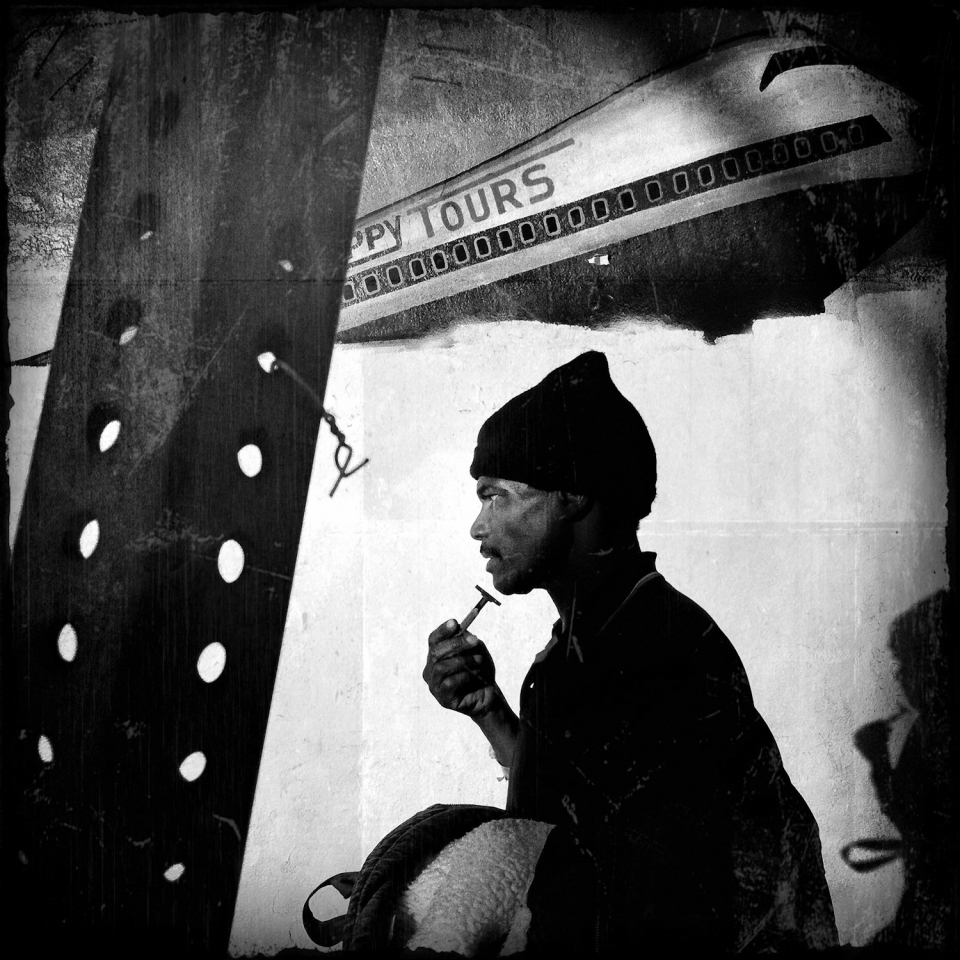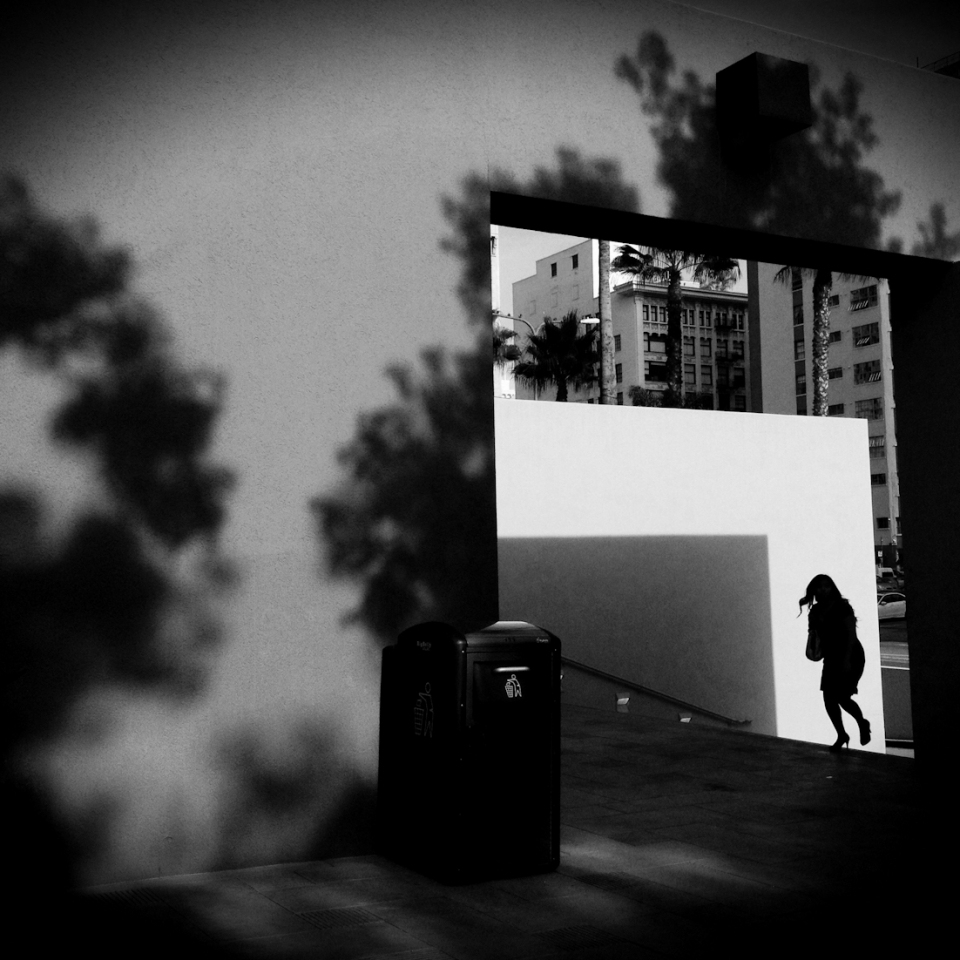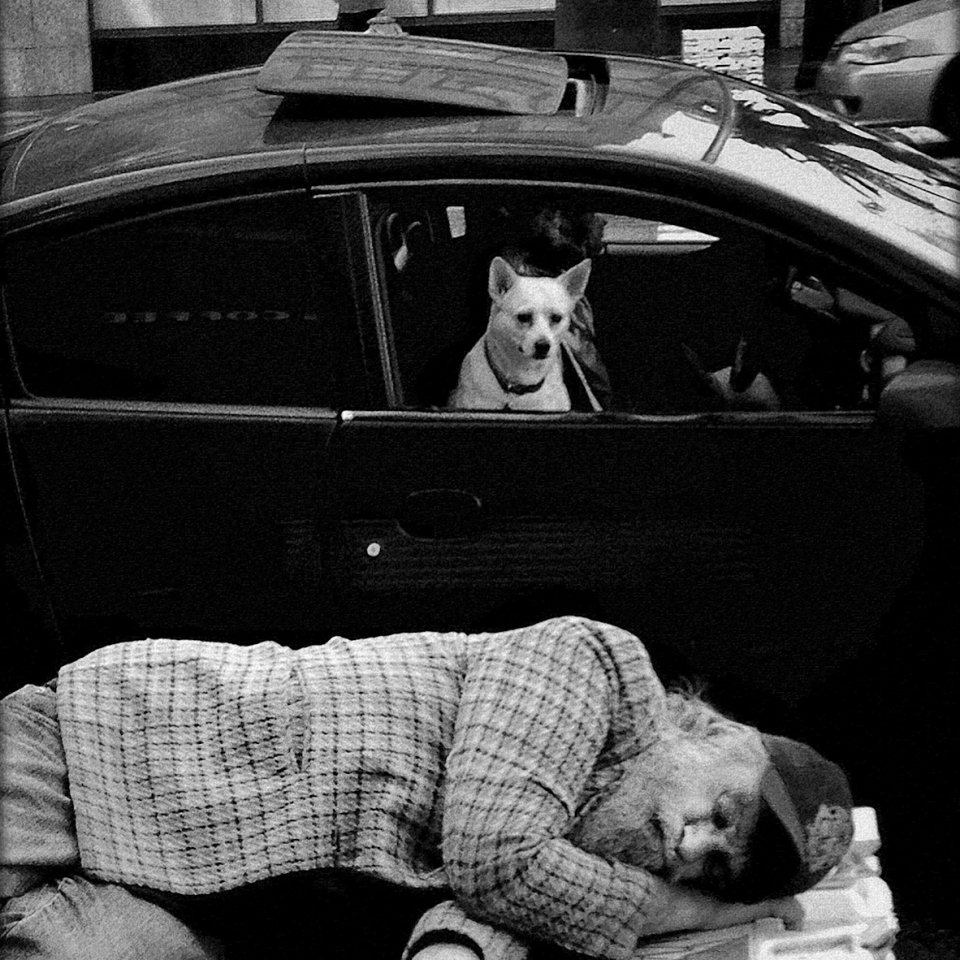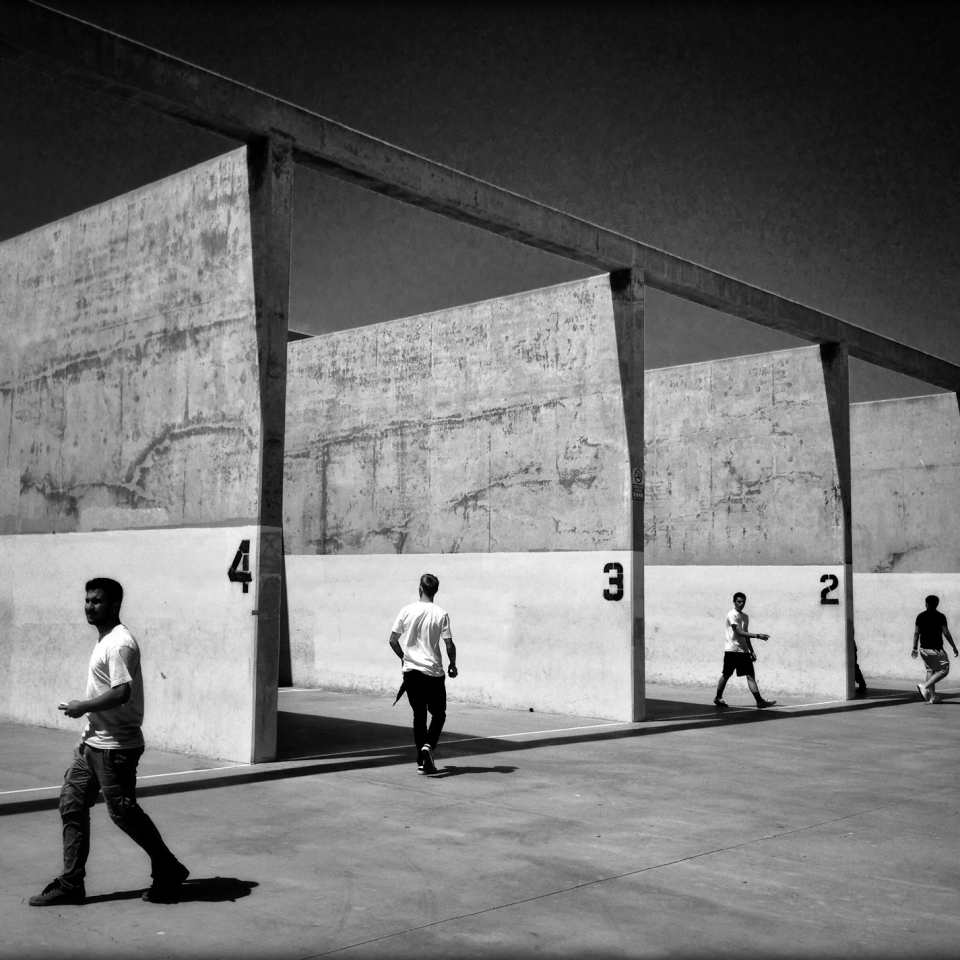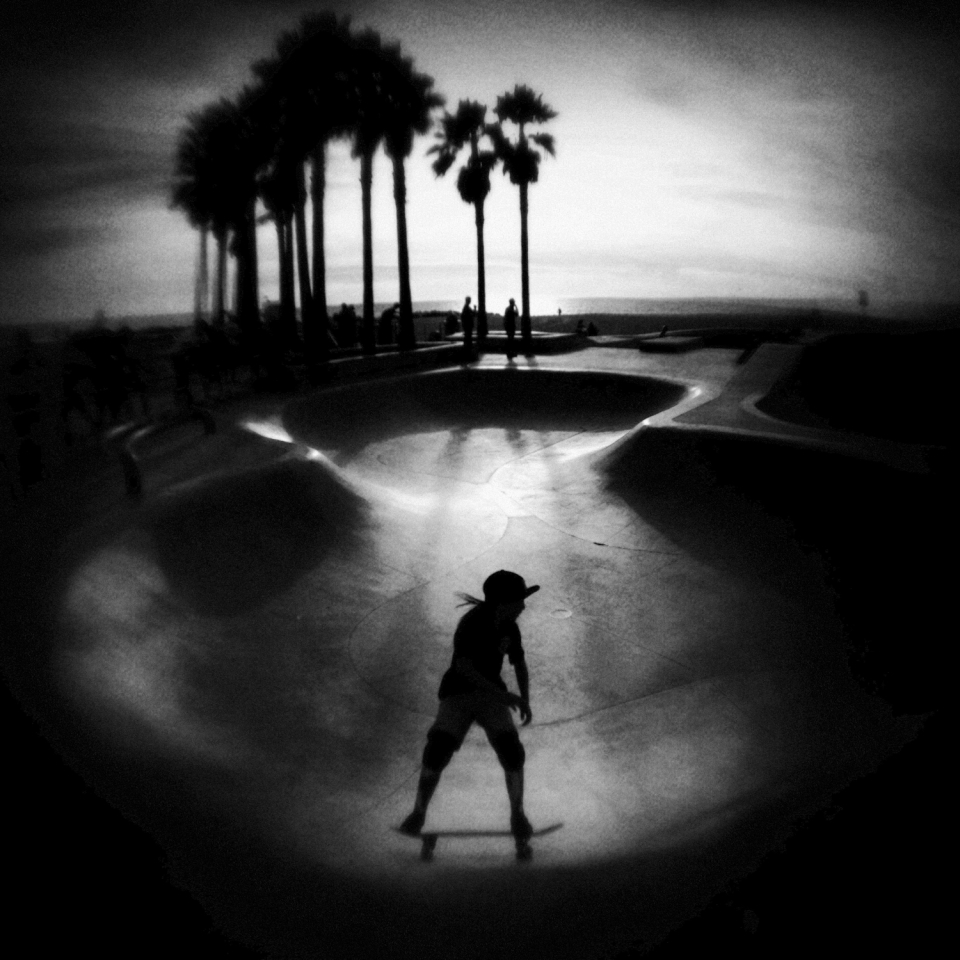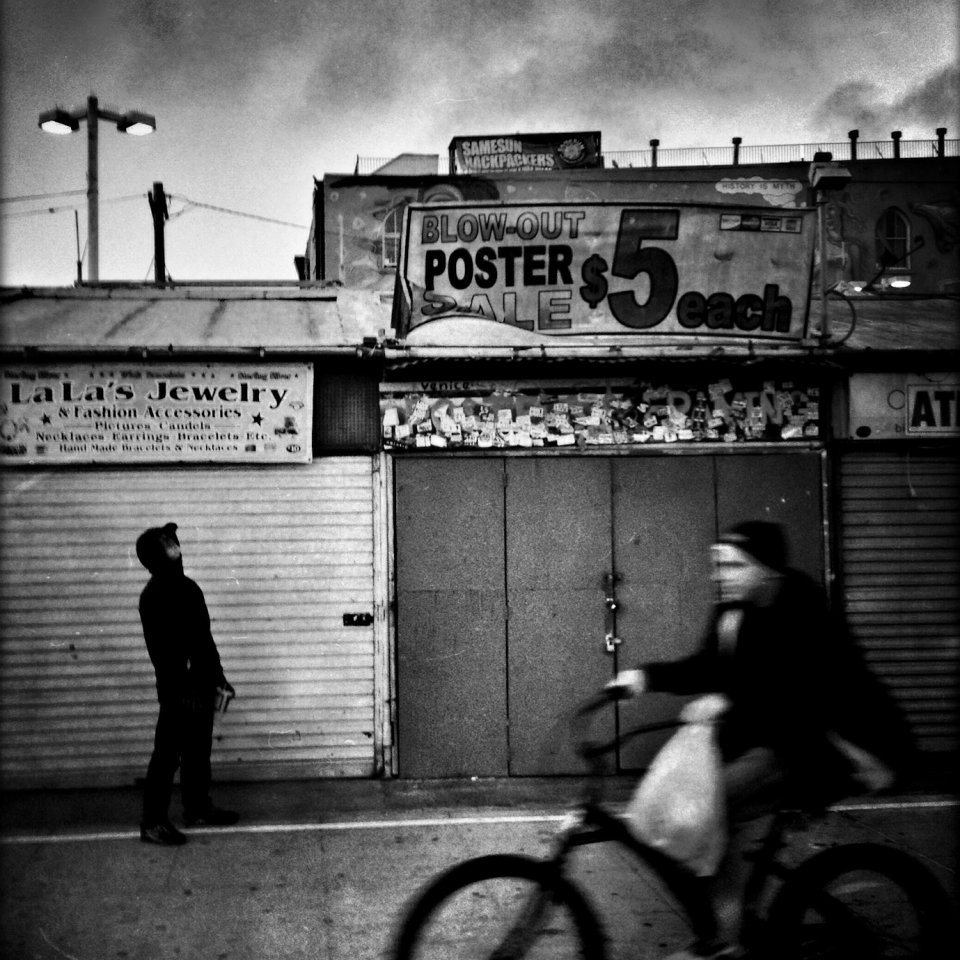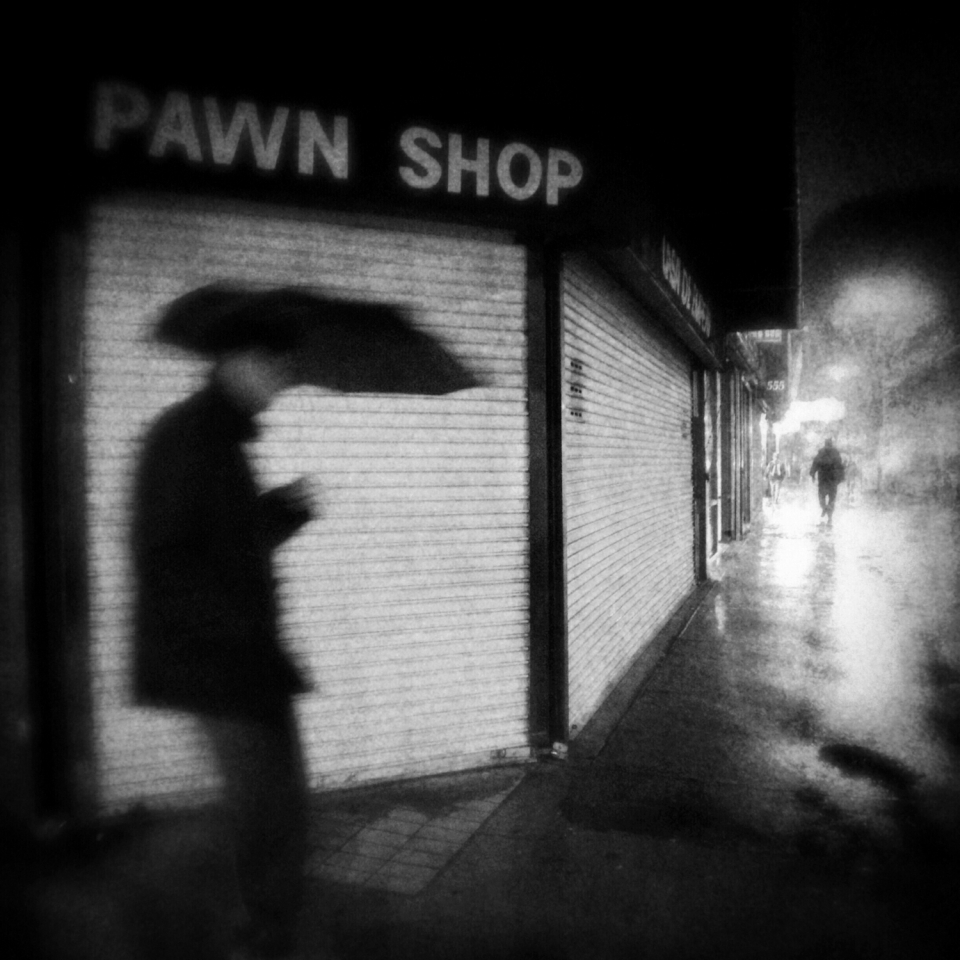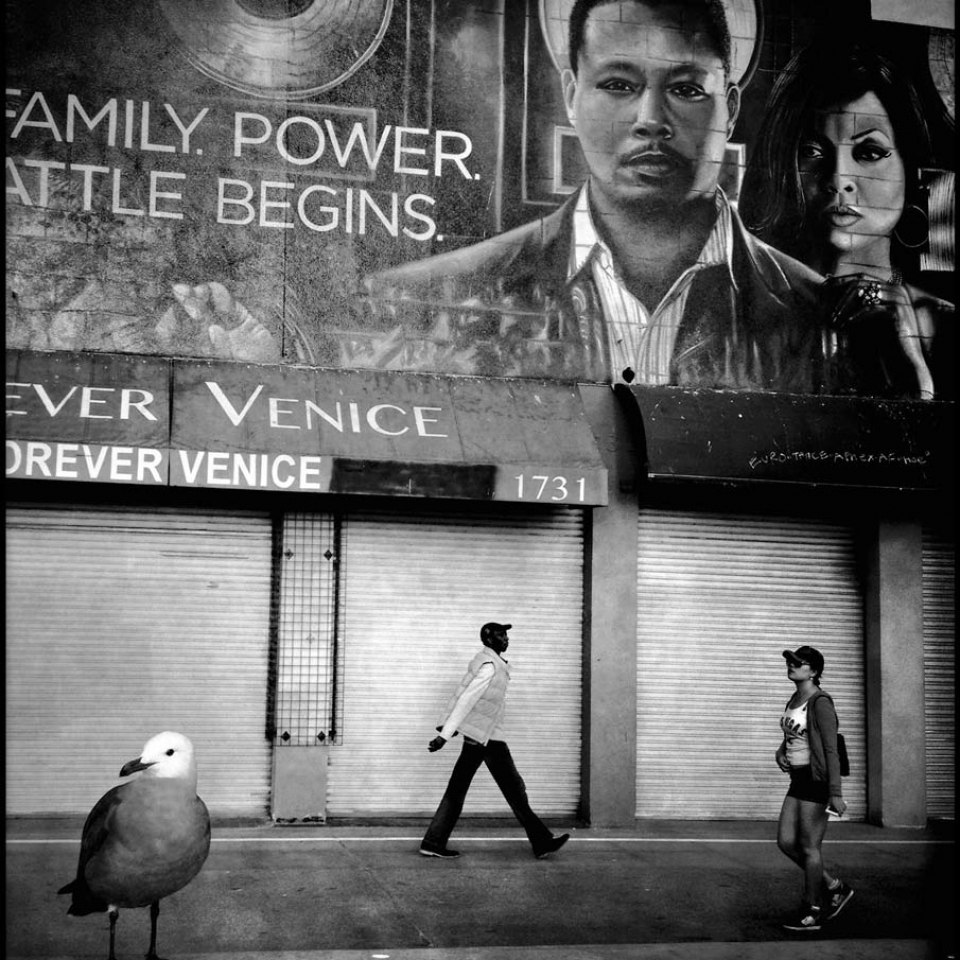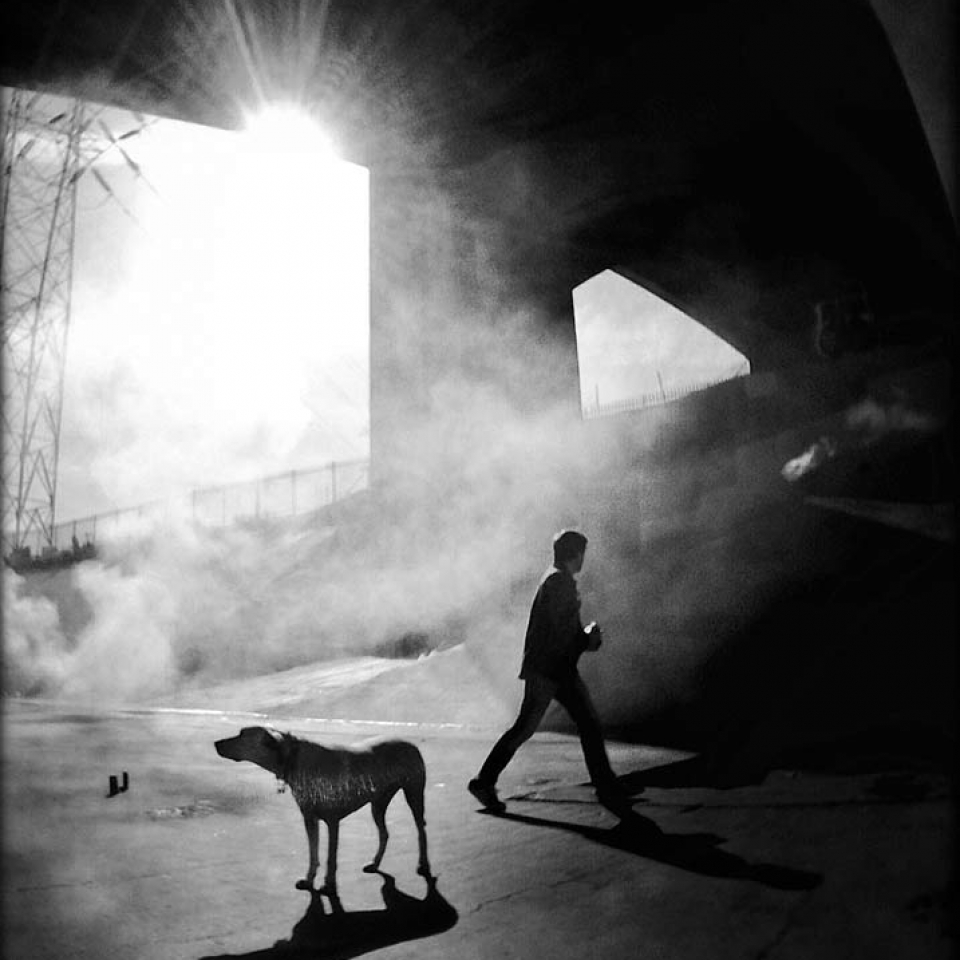David Ingraham
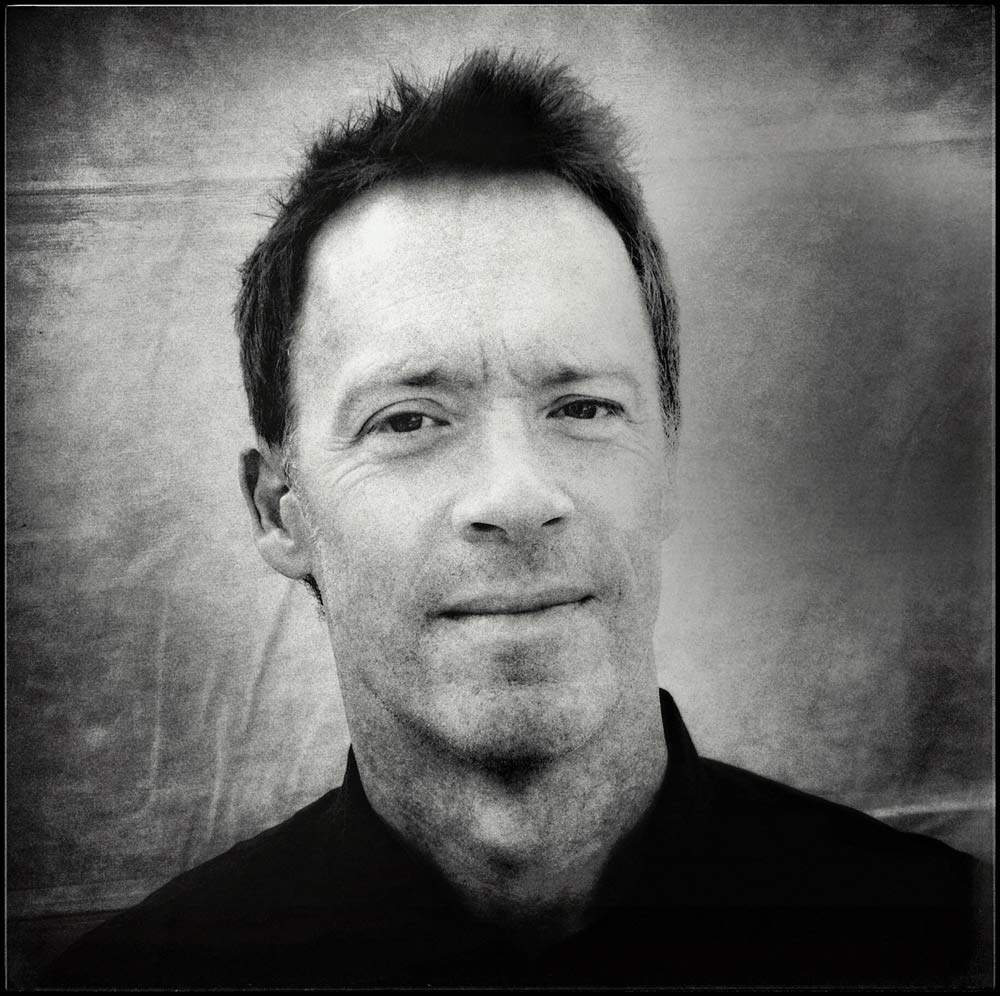
About
David Ingraham (http://davidingraham.com) is a Los Angeles based photographer and musician. His work has been presented in numerous publications such as the Los Angeles Times, Black & White Magazine, American Photo Mag.com, Time.com, as well as David Alan Harvey’s Burn Magazine. His work has been exhibited worldwide, from Paris and Istanbul, New York and Toronto, to Los Angeles. David has made the iPhone his camera of choice for the last five years.
Gallery
LACP Interviews David Ingraham
LACP asks David Ingraham ten questions about his background, career in and beliefs about photography
Los Angeles Center of Photography: What kind of photographer are you?
David Ingraham: If I had to categorize myself, I guess “street photographer” would be the obvious choice. Although I’ve dabbled in numerous photographic genres over the years, it wasn’t until I finally focused on the streets exclusively that I was able to really find my voice and a style I could call my own.
LACP: How long have you been shooting?
DI: I’ve been shooting ever since I was a kid, getting my first camera –a Kodak Pocket Instamatic– when I was around eight, eventually graduating to a Minolta SLR in my teens. But due to music being my main focus for many years, I didn’t really start to take photography seriously until my mid thirties, so I’m a bit of a late bloomer in that sense.
LACP: Where did you get your training?
DI: For the most part I’m self-taught, getting most of my knowledge from the large collection of photography books I’ve been collecting and studying for years. I did take a darkroom class back in 2002, eventually building my own darkroom at home, and recently participated in one of David Alan Harvey’s Oaxaca Workshops, but other than that, I’ve just been burying myself in books and learning by trial and error.
LACP: When did you know you wanted to devote your life to photography?
DI: Well, to be honest with you, my first love was music. I’m a professional musician by trade, so the photography has always been a creative outlet on the side. But as I get older and the music has inevitably become a job, a great job, but a job nonetheless. Photography has become more and more important to me; a form of pure expression without any pressure to earn money from it. I do bring in some extra money on the side via the photography but that’s been more of happy accident than any kind of professional goal.
LACP: Did you ever come close to giving up?
DI: I come close to giving up after every shoot. I say that half jokingly but after all these years of shooting I still find the medium incredibly frustrating, usually coming home from a long afternoon of shooting with a surprisingly large amount of terrible photos. You’d think it would get easier the more you do it but sometimes I think it gets harder! Alex Webb says that street photography is 99.9% about failure. As depressing a figure as that is, I do take comfort in knowing that even the best street photographers in the world struggle at it. That helps keep me from just throwing in the towel.
LACP: Have you sacrificed anything by being a photographer?
DI: In a word, yes; probably more than I even know, but I try not to think of it on those terms. Photography can be such a great creative outlet, keeping me out of trouble and helping me to forget about my problems for a while –a great form of therapy in that sense, so whatever I may be sacrificing as a photographer, I’m getting so much back in return. But with that said, I’m an ex-smoking street photographer who happens to live in the city with the worst air quality in the country, and this simple fact has actually caused me some health issues. It’s one of the dark sides of street photography that people don’t talk about much but the fact is, going out shooting on a smoggy day is NOT a good idea. I’ve had to learn this the hard way.
LACP: What have you gained by being a photographer?
DI: Needless to say, I’ve gained a much more perceptive eye to the world around me. I’m much more observant to things that I think maybe your average person overlooks. The dynamic between beautiful light and shadow, the geometry of the city and the serendipity and poetry of the streets. But I think I’ve also gained a lot of confidence as an artist, something that can only come from doing something over and over until you finally start to figure it out and find your voice.
LACP: What classes do you teach at LACP?
DI: I teach “The Art of Mobile Street Photography”. I was bitten by the iPhone bug about five years ago and have shot with barely anything else since, so the Smartphone has become my street camera of choice.
LACP: What do you love most about teaching?
DI: The human engagement factor plays a large role. I’ve been offered to do online courses but I really prefer the hands-on, face-to face dynamic of a live workshop. I enjoy interacting with the students and knowing that I’m helping to inspire them and hopefully helping them to see things in a fresh way. I’ve had some really amazing teachers in my lifetime, a handful that I’ll never forget due to the impact they had on me, so I can only hope that maybe one day I can have that sort of impact on someone else.
LACP: What advice would you give someone who is thinking about making a career in photography?
DI: Stop! Turn back now! Ha ha, no seriously, I think it’s a very challenging time in the history of photography as far as making a living as a photographer is concerned. The question brings to mind another Alex Webb quote that’s stuck with me over the years and has helped keep me going: “Photograph because you love doing it, because the chief reward is going to be the process of doing it.” The quote goes on and he ends it by saying “Take photography on as a passion, not as a career.” This may seem like a bit of a downer, maybe a little discouraging for an ambitious up-and-comer, but it’s really helped me to not lose sight of why I got into photography in the first place: The love of it.
But as someone who’s been playing music for a living for over twenty years, one thing I learned early on was that if I wanted to pay the bills as a drummer, I had to make some compromises as far as the music I was willing to play. In other words, I had to be willing to play music that wasn’t necessarily the kind of music I’d choose to listen to for my own pleasure. I think this is applicable to anyone who wants to pursue photography as a profession because if you want to make money at it, you may have to be a wedding photographer or a commercial photographer, maybe be willing to shoot things that you aren’t very passionate about and keep the personal projects on the side. But hey, if you’re able to be passionate about shooting weddings or commercials, well then you’re on to something! I guess that’s best of both worlds.
